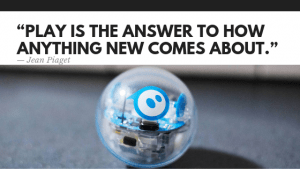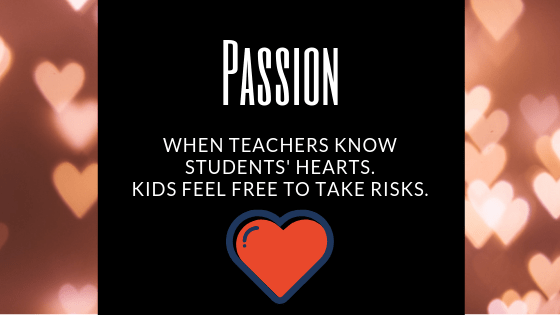Mission Control: Teachers Launch Passion!
Tonight, I was drawn to attending a talk given by David Wolf. As a teacher, I could not pass up the opportunity to hear his story and find gems to share with kids. So many students, like all of us, are captivated by space. Secretly, I had in my heart the idea that something he would say would support my stance on Passion Projects in education.
 Stats on David Wolf:
Stats on David Wolf:
- Astronaut, Medical Doctor, Engineer, Scientist and Pilot
- Logged 168 days, 12 hours, 56 minutes and 4 seconds in space – over four separate missions including 7 spacewalks
- Served aboard the Russian Mir space station, Space Shuttle, Spacelab and the International Space Station.
Wolf shared of his experiences in space and adding to the International Space Station. He discussed the seven hour sessions out on space walks and all that it takes to train. The grit it takes to prepare for the “one shot” attempts in space. There are no second chances and the mission needs to be perfect. He inspired many kids to ask him questions after his talk. He was just like us as teachers. The kids showed their depth of knowledge in a wide range of space topics and you could see it in Wolf’s face that he understood the value of their background information. He addressed their facts and aided their misconceptions with grace. There was a key question the teacher in me was waiting to be asked…
What do students need who aspire to work for NASA?
Follow your passion. Work on what you are good at doing. Your own path is what you should do, as long as you do well at it.” -David Wolf
Yes, validation on why following passion is important. We give students time to dig deeper and explore the depths of what drives a desire to learn. Wolf was not giving kids permission to waste time. He was encouraging them to do their passions well. If we launch kids into their passions, we can affirm their future. An astronaut must have a wide range of knowledge. Wolf had to find expertise in many areas to pursue his career.

What 21st Century skill is needed the most?
Flexibility to problem solve on the spot. Wolf explained getting stuck in an airlock and exhausting the checklist. He knew that you had to have the ability to think beyond the checklist. So, our students need experiences where they have to troubleshoot and we cannot rescue them right away. We have to play “Mission Control” and guide.
The only thing we know is not going to happen is Plan A. I’ve been right every time.” -David Wolf
As teachers, we know that best plans have a way of changing. We learn to adapt to the kids in front of us. How can we help kids learn to develop multiple plans in facing a problem? How much more valuable do classroom experiences become, when we promote plan B, C, D, E, etc.? Launch kids into their passions and be the “Mission Control” to their aid. You cannot do it for them, but you can provide a process.

 Part of me wanted to immediately start the teacher drill of questions when he came to me with his rather weak proposal. What are you going to do with that? Why do you want to use the Sphero? Do you have a goal in mind? However, I knew better because this particular student struggles to find a passion for learning. It was not my time to get in his way and create obstacles. I needed to let him gain an interest in a technological tool.
Part of me wanted to immediately start the teacher drill of questions when he came to me with his rather weak proposal. What are you going to do with that? Why do you want to use the Sphero? Do you have a goal in mind? However, I knew better because this particular student struggles to find a passion for learning. It was not my time to get in his way and create obstacles. I needed to let him gain an interest in a technological tool.





 When it came time to make the decision to change the title from “Genius Hour” to “Passion Time,” it was easy. Internally, I had a cringe when it came to the word “genius.” I had to ponder why. Genius makes me think of fixed mindset. You are either born brilliant or you are not. Why project a bell curve or give a sense that only a few will be successful in a time period of the day or week at school?
When it came time to make the decision to change the title from “Genius Hour” to “Passion Time,” it was easy. Internally, I had a cringe when it came to the word “genius.” I had to ponder why. Genius makes me think of fixed mindset. You are either born brilliant or you are not. Why project a bell curve or give a sense that only a few will be successful in a time period of the day or week at school?